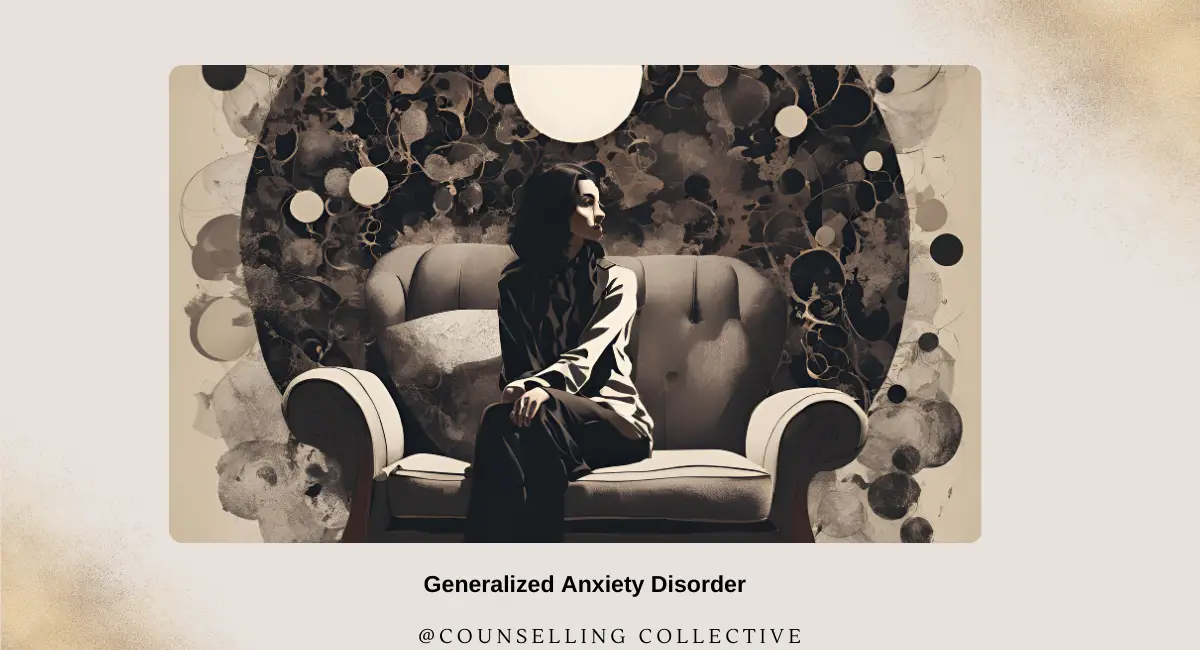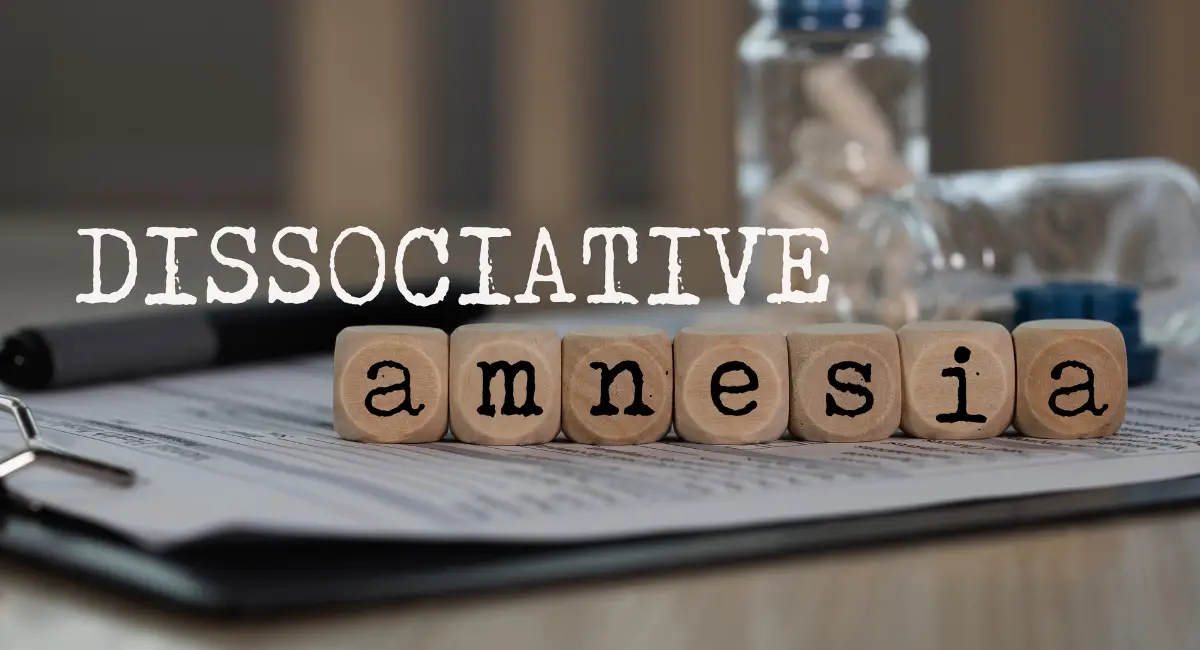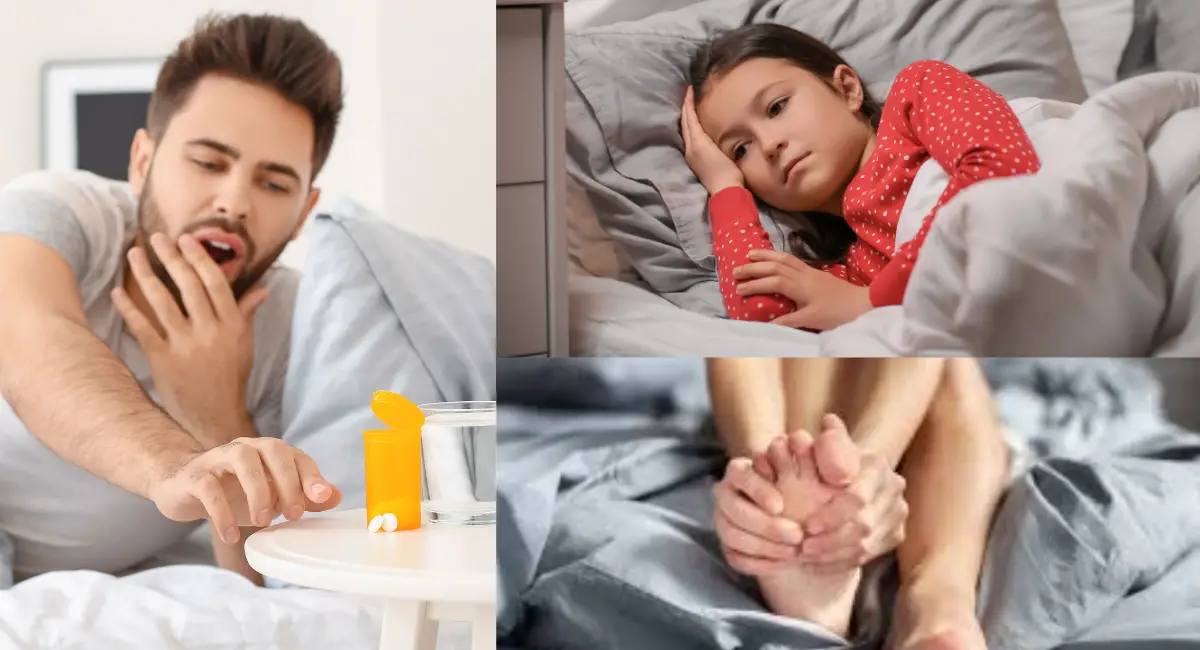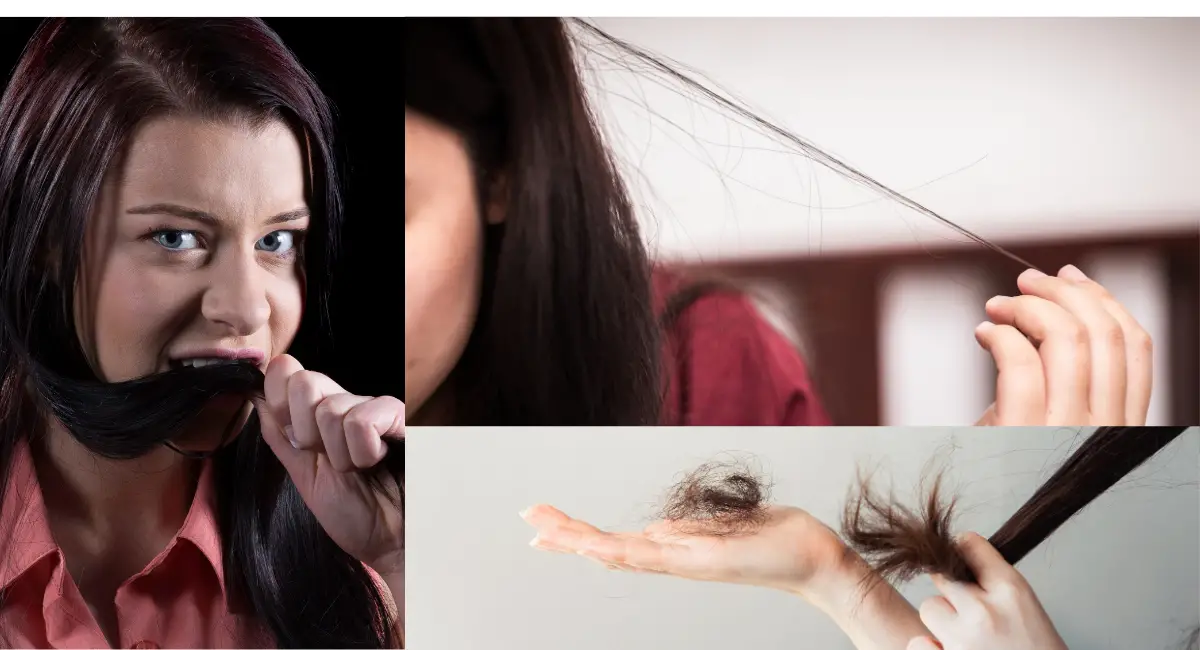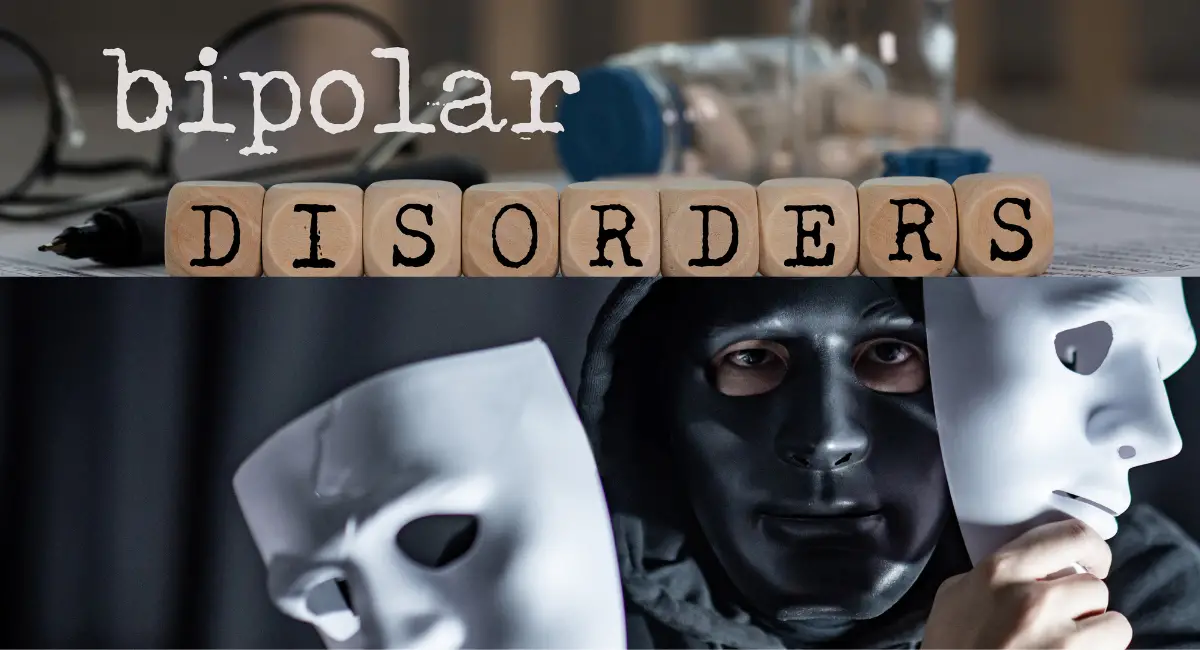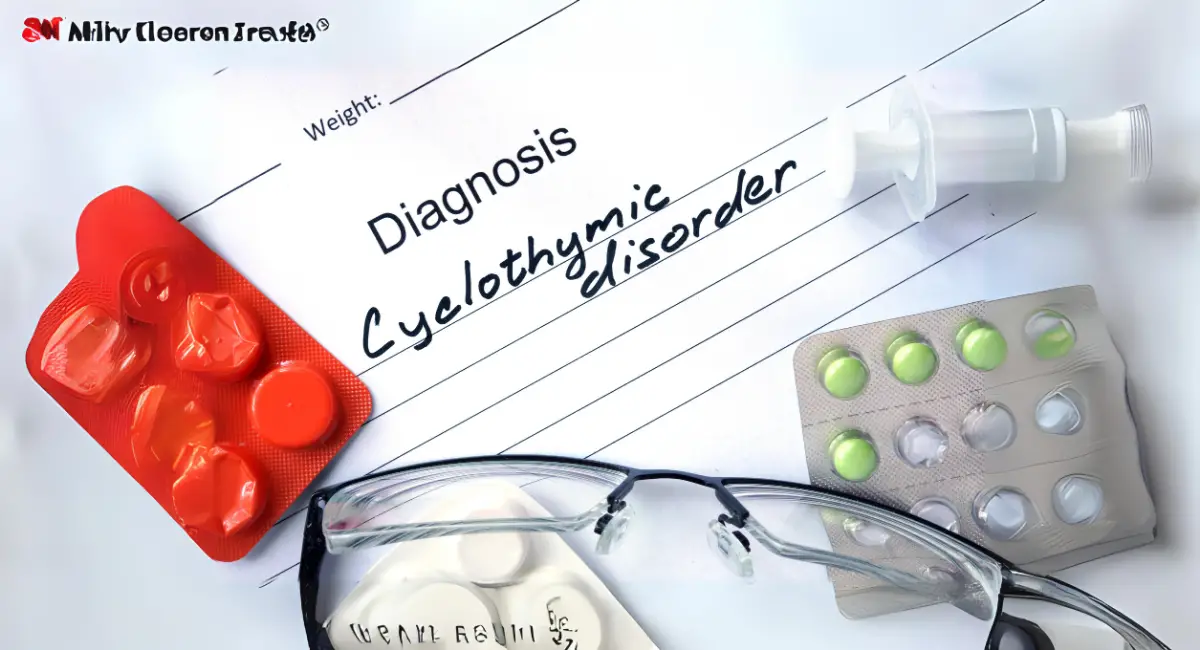Contents
Introduction
Sleep-Related Bruxism is a sleep disorder characterized by repetitive jaw muscle activity, which results in teeth grinding or clenching during sleep. This condition can lead to various dental issues, including worn-down teeth, jaw pain, headaches, and sleep disturbances. Sleep-Related Bruxism is considered a type of sleep-related movement disorder, as the jaw movements occur involuntarily during sleep, often without the individual’s awareness.
According to the International Classification of Sleep Disorders (ICSD-3) and the Diagnostic and Statistical Manual of Mental Disorders, Fifth Edition (DSM-5), Sleep-Related Bruxism is diagnosed when the teeth grinding or jaw clenching occurs frequently during sleep and causes significant distress, physical damage, or sleep disruption. This article will explore the Symptoms, Causes, and Therapy Options for Sleep-Related Bruxism in detail.
Symptoms of Sleep-Related Bruxism
The symptoms of Sleep-Related Bruxism typically involve teeth grinding or clenching during sleep, often accompanied by other physical signs such as jaw pain and headaches. Below is a table outlining the common symptoms and examples of how they manifest:
| Symptom | Description/Example |
|---|---|
| Teeth Grinding or Clenching | Repetitive grinding or clenching of the teeth during sleep. This behavior is often noticed by a sleeping partner or identified through dental examination. |
| Jaw Pain or Tension | Individuals may wake up with sore or tense jaw muscles due to the excessive muscle activity during sleep. |
| Tooth Damage | Over time, Sleep-Related Bruxism can cause wear and tear on the teeth, leading to dental problems such as chipped or worn-down teeth, gum recession, or increased tooth sensitivity. |
| Headaches | Morning headaches, particularly tension-type headaches, are a common symptom of Sleep-Related Bruxism, as the jaw clenching places strain on the head and neck muscles. |
| Sleep Disruption | The jaw movements during sleep can lead to frequent awakenings or sleep fragmentation, resulting in daytime fatigue or sleepiness. |
Causes and Risk Factors of Sleep-Related Bruxism
The exact cause of Sleep-Related Bruxism is not fully understood, but it is thought to involve a combination of psychological, neurological, and lifestyle factors. Below are the most common causes and risk factors for Sleep-Related Bruxism.
1. Stress and Anxiety
Stress and anxiety are among the most common causes of Sleep-Related Bruxism. Individuals who are under significant psychological stress or dealing with anxiety may unconsciously clench their jaw or grind their teeth during sleep as a way of coping with tension.
- Bruxism is often considered a stress-related disorder, with higher rates of teeth grinding seen in individuals who report high levels of stress or anxiety. Cognitive-behavioral models suggest that bruxism may serve as a physical manifestation of emotional stress, similar to other stress-related behaviors like nail-biting.
- Cortisol, the body’s primary stress hormone, may play a role in the development of Sleep-Related Bruxism. Elevated cortisol levels, particularly at night, may increase muscle tension and lead to jaw clenching or grinding.
Michael, a 35-year-old man diagnosed with Sleep-Related Bruxism, noticed that his symptoms worsened during periods of high work-related stress. His dentist identified significant wear on his teeth, prompting him to seek treatment for his grinding habit.
2. Neurological Factors
Research suggests that Sleep-Related Bruxism may be linked to neurological factors, particularly abnormalities in the central nervous system that control muscle movements during sleep. The condition may also be associated with arousals during non-REM sleep, when the jaw muscles become hyperactive.
- Sleep-Related Bruxism has been associated with abnormal activity in the areas of the brain that control motor movements, such as the basal ganglia. Dysfunction in these brain regions can result in the involuntary activation of jaw muscles during sleep.
- Studies show that bruxism episodes often occur during brief awakenings or arousals from sleep, particularly during light stages of non-REM sleep. These arousals may trigger a burst of muscle activity in the jaw, leading to grinding or clenching.
Sarah, a 40-year-old woman with Sleep-Related Bruxism, underwent a sleep study that revealed frequent arousals from non-REM sleep. During these arousals, her jaw muscles became hyperactive, leading to teeth grinding.
3. Genetics
Sleep-Related Bruxism appears to have a genetic component, as it tends to run in families. Individuals with a family history of bruxism are more likely to develop the condition, suggesting that genetic factors may influence susceptibility to the disorder.
- Genetic studies have identified several potential genes that may contribute to Sleep-Related Bruxism, particularly those involved in the regulation of motor control and muscle activity during sleep.
- Familial bruxism often presents earlier in life and may be more severe than cases with no family history.
Tom, diagnosed with Sleep-Related Bruxism, discovered that both his father and brother had experienced similar teeth grinding issues during their lives. This family history pointed to a genetic predisposition for the condition.
4. Medications and Substances
Certain medications and substances can trigger or exacerbate Sleep-Related Bruxism. Stimulants like caffeine, nicotine, and amphetamines can increase muscle tension and may lead to nighttime teeth grinding. Similarly, certain psychiatric medications, such as antidepressants and antipsychotics, may contribute to bruxism.
- Selective Serotonin Reuptake Inhibitors (SSRIs), commonly prescribed for depression and anxiety, have been associated with an increased risk of bruxism. These medications affect serotonin levels in the brain, which can lead to increased muscle activity during sleep.
- Stimulants like caffeine and nicotine can increase sympathetic nervous system activity, leading to heightened muscle tension and an increased likelihood of jaw clenching during sleep.
John, diagnosed with Sleep-Related Bruxism, noticed that his symptoms worsened after increasing his caffeine intake. After cutting back on coffee and quitting smoking, he experienced a reduction in his nighttime teeth grinding.
5. Dental and Orthodontic Issues
Sleep-Related Bruxism can also be linked to malocclusion (misaligned teeth), which can cause the jaw muscles to work harder during sleep, leading to grinding or clenching. In some cases, dental issues may contribute to the development of bruxism or worsen existing symptoms.
- Malocclusion, or the improper alignment of the teeth, can create imbalances in the way the jaw muscles work during sleep. These imbalances may increase the likelihood of teeth grinding or clenching.
Emily, diagnosed with Sleep-Related Bruxism, discovered that her bruxism was partly caused by malocclusion. After receiving orthodontic treatment to correct her bite, her symptoms improved significantly.
Therapy and Treatment Options for Sleep-Related Bruxism
Treatment for Sleep-Related Bruxism focuses on managing the physical effects of teeth grinding, such as dental damage and jaw pain, while addressing the underlying causes, such as stress or neurological factors. Effective therapy options include Cognitive Behavioral Therapy (CBT), Dental Interventions, and Pharmacotherapy.
1. Cognitive Behavioral Therapy (CBT)
Cognitive Behavioral Therapy (CBT) is an effective treatment for individuals whose Sleep-Related Bruxism is linked to stress or anxiety. CBT helps individuals recognize and change the thought patterns and behaviors that contribute to their stress, which may, in turn, reduce their teeth grinding during sleep.
- CBT focuses on helping individuals identify the triggers for their bruxism, such as stress or anxiety, and develop coping strategies to manage these triggers. Techniques such as relaxation training, mindfulness, and cognitive restructuring can reduce the psychological factors contributing to bruxism.
- Biofeedback is sometimes used in combination with CBT to help individuals become more aware of their jaw muscle activity and learn to control it.
Michael, diagnosed with Sleep-Related Bruxism, attended Cognitive Behavioral Therapy (CBT) sessions to address his condition. During these sessions, he learned relaxation techniques and coping strategies to manage his work-related stress, which had been a major trigger for his teeth grinding. Over time, these approaches helped him reduce tension and anxiety, leading to a noticeable decrease in the frequency of his teeth grinding.
2. Dental Interventions
Dental interventions are commonly used to manage the physical effects of Sleep-Related Bruxism and protect the teeth from further damage. The most common dental intervention is the use of a night guard or splint.
- Night guards or occlusal splints are custom-made devices worn over the teeth during sleep to prevent further tooth damage from grinding. These devices act as a barrier, protecting the teeth from direct contact and reducing the risk of wear, fractures, or sensitivity.
- Orthodontic treatment may be recommended for individuals with malocclusion, as correcting the alignment of the teeth can reduce the strain on the jaw muscles and alleviate bruxism symptoms.
Sarah, diagnosed with Sleep-Related Bruxism, was fitted with a custom night guard by her dentist to help protect her teeth from further wear caused by grinding. The night guard also reduced the intensity of her jaw clenching during sleep, alleviating the strain on her jaw muscles. Over time, Sarah noticed a decrease in the discomfort and pain associated with her bruxism, leading to improved sleep quality.
3. Pharmacotherapy
Medications may be prescribed to manage the symptoms of Sleep-Related Bruxism, particularly if stress, anxiety, or neurological factors are contributing to the condition. Muscle relaxants, SSRIs, and other medications are used to treat bruxism.
- Muscle relaxants may be prescribed for short-term use to reduce the jaw clenching associated with bruxism. These medications help relax the jaw muscles and decrease the frequency of teeth grinding episodes.
- SSRIs or other antidepressants may be used to treat underlying anxiety or depression that contributes to bruxism. In some cases, adjusting the dosage of an existing SSRI can reduce the bruxism side effects.
Tom, diagnosed with Sleep-Related Bruxism, was prescribed a muscle relaxant by his doctor to help reduce his nighttime jaw clenching. This medication helped to relax the muscles in his jaw, preventing excessive clenching and the associated discomfort. In addition to the medication, Tom was fitted with a custom night guard by his dentist, which provided further protection for his teeth and minimized the intensity of his grinding.
4. Behavioral Therapy and Relaxation Techniques
For individuals whose Sleep-Related Bruxism is primarily triggered by stress or anxiety, behavioral therapy and relaxation techniques can be highly effective. These approaches focus on reducing tension and promoting relaxation before bedtime.
- Progressive muscle relaxation and deep breathing exercises can help individuals reduce the muscle tension that contributes to teeth grinding during sleep.
- Mindfulness meditation and guided imagery may also be helpful in reducing stress and anxiety, which are common triggers for bruxism.
John, diagnosed with Sleep-Related Bruxism, began practicing progressive muscle relaxation before bed each night to help reduce his jaw tension. By consciously relaxing his muscles, especially in his face and jaw, he was able to ease the tightness that often led to grinding and clenching. Over time, this practice helped him manage his bruxism symptoms, leading to improved sleep quality. With reduced jaw tension,
Long-Term Management of Sleep-Related Bruxism
Long-term management of Sleep-Related Bruxism involves ongoing strategies to protect the teeth, reduce stress, and prevent the worsening of symptoms. Key strategies for long-term management include:
- Consistent Use of Night Guards: Wearing a night guard regularly can protect the teeth from further damage and reduce the impact of grinding or clenching during sleep.
- Stress Management: Ongoing stress reduction techniques, such as CBT, meditation, and exercise, can help prevent the worsening of bruxism symptoms.
- Regular Dental Checkups: Regular visits to the dentist are important for monitoring the condition of the teeth and ensuring that any damage caused by bruxism is addressed promptly.
Conclusion
Sleep-Related Bruxism is a sleep disorder characterized by repetitive teeth grinding or jaw clenching during sleep, which can lead to dental damage, jaw pain, and sleep disturbances. The causes of Sleep-Related Bruxism include stress, neurological factors, genetics, medications, and dental issues. Treatment options such as Cognitive Behavioral Therapy (CBT), Dental Interventions, Pharmacotherapy, and Behavioral Therapy can significantly improve symptoms and protect the teeth from further damage. Long-term management strategies, including regular use of night guards, stress reduction, and ongoing dental care, are essential for preventing relapse and maintaining good oral health.
References
- American Academy of Sleep Medicine. (2014). International classification of sleep disorders (3rd ed.). American Academy of Sleep Medicine.
- American Psychiatric Association. (2013). Diagnostic and statistical manual of mental disorders (5th ed.). American Psychiatric Publishing.
- Lavigne, G. J., Khoury, S., Abe, S., Yamaguchi, T., & Raphael, K. (2008). Bruxism physiology and pathology: An overview for clinicians. Journal of Oral Rehabilitation, 35(7), 476–494.
- Klasser, G. D., & Rei, N. (2015). Sleep bruxism: Diagnostic and treatment considerations. Sleep Medicine Clinics, 10(4), 509–517.
- Lobbezoo, F., & Naeije, M. (2001). Bruxism is mainly regulated centrally, not peripherally. Journal of Oral Rehabilitation, 28(12), 1085–1091.
- Manfredini, D., Winocur, E., Guarda-Nardini, L., Paesani, D., & Lobbezoo, F. (2013). Epidemiology of bruxism in adults: A systematic review of the literature. Journal of Orofacial Pain, 27(2), 99–110.
- Carra, M. C., Huynh, N., & Lavigne, G. J. (2012). Sleep bruxism: A comprehensive overview for the dental clinician interested in sleep medicine. Dental Clinics of North America, 56(4), 387–413.
- Rugh, J. D., & Harlan, J. (1988). Nocturnal bruxism and temporomandibular disorders. Advances in Neurology, 49, 329–341.
- Shetty, S., Pitti, V., Babu, C. L., Kumar, G. P., & Deepthi, B. C. (2010). Bruxism: A literature review. Journal of Indian Prosthodontic Society, 10(3), 141–148.
- Kato, T., Thie, N. M., Montplaisir, J. Y., & Lavigne, G. J. (2001). Bruxism and orofacial movements during sleep. Dent Clin North Am, 45(4), 657–684.
Explore Other Mental Health Issues

